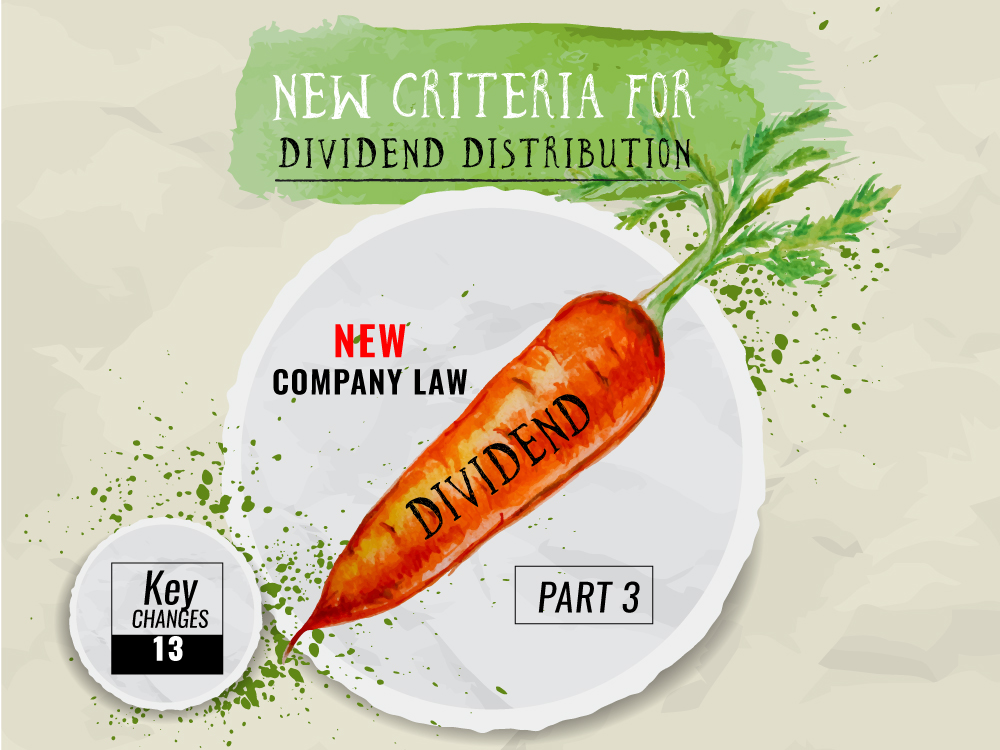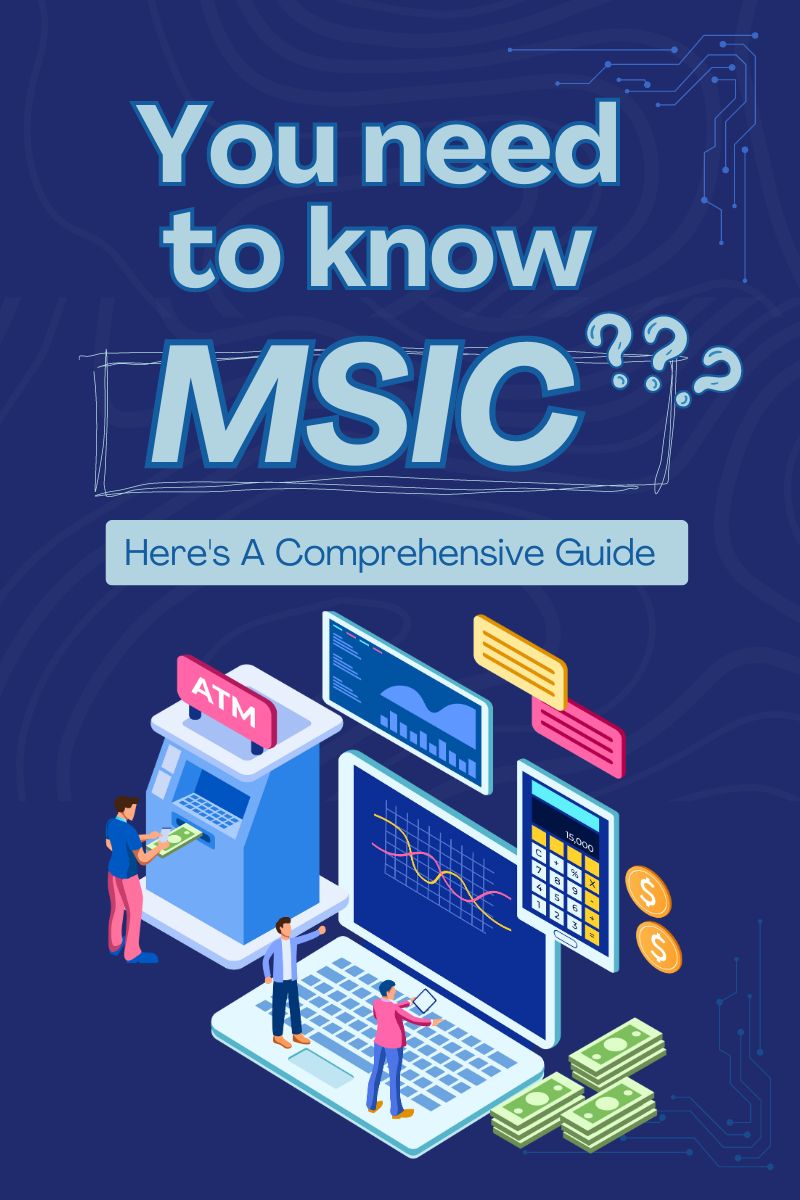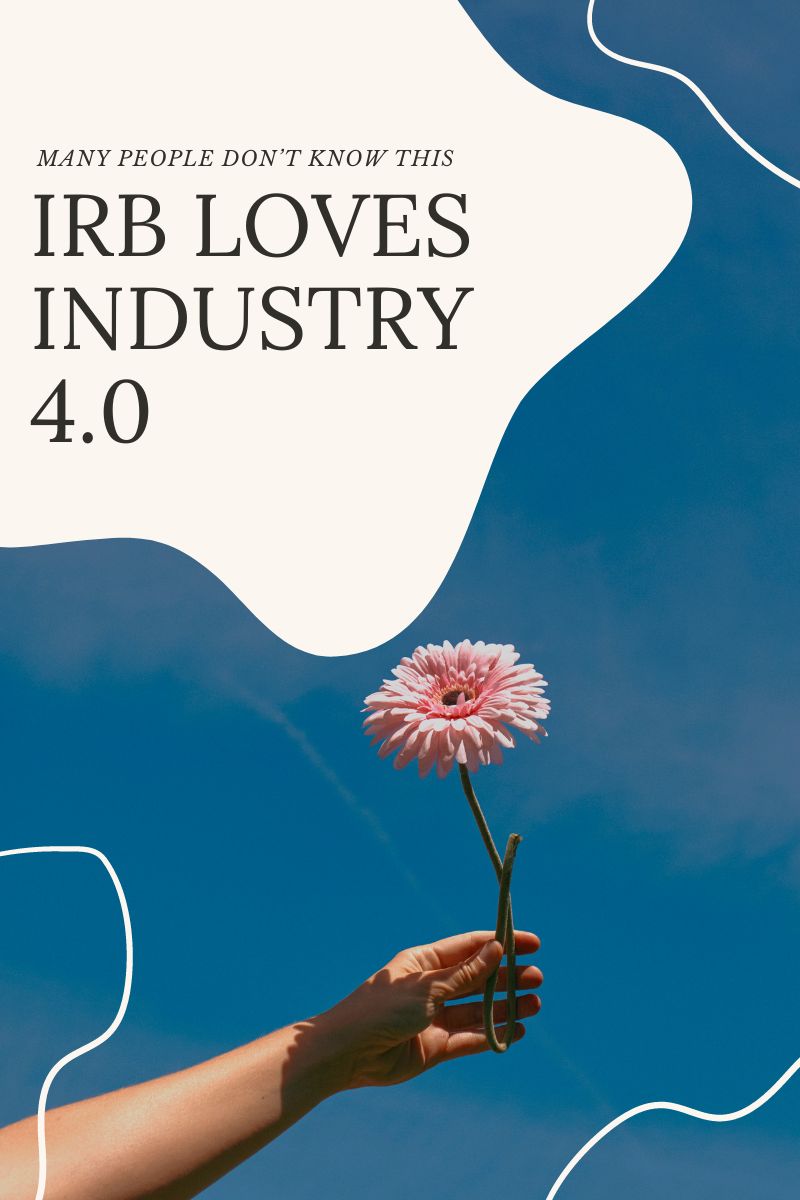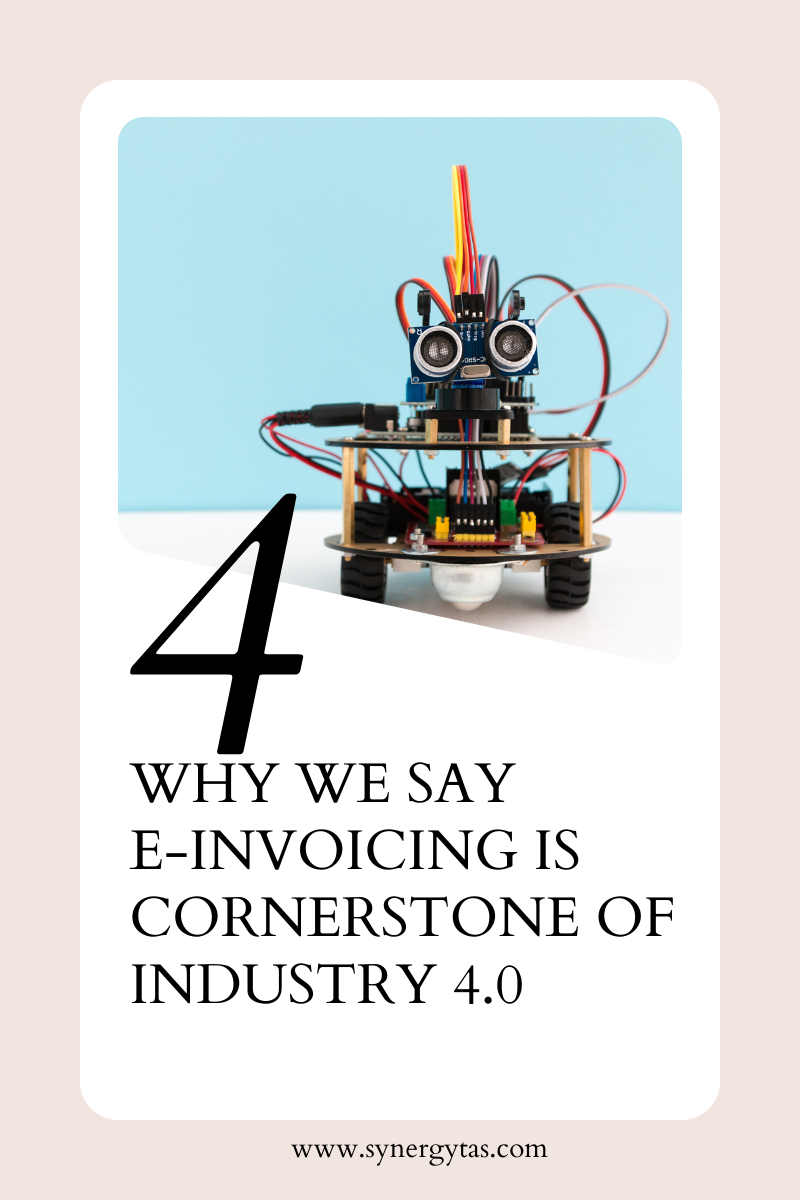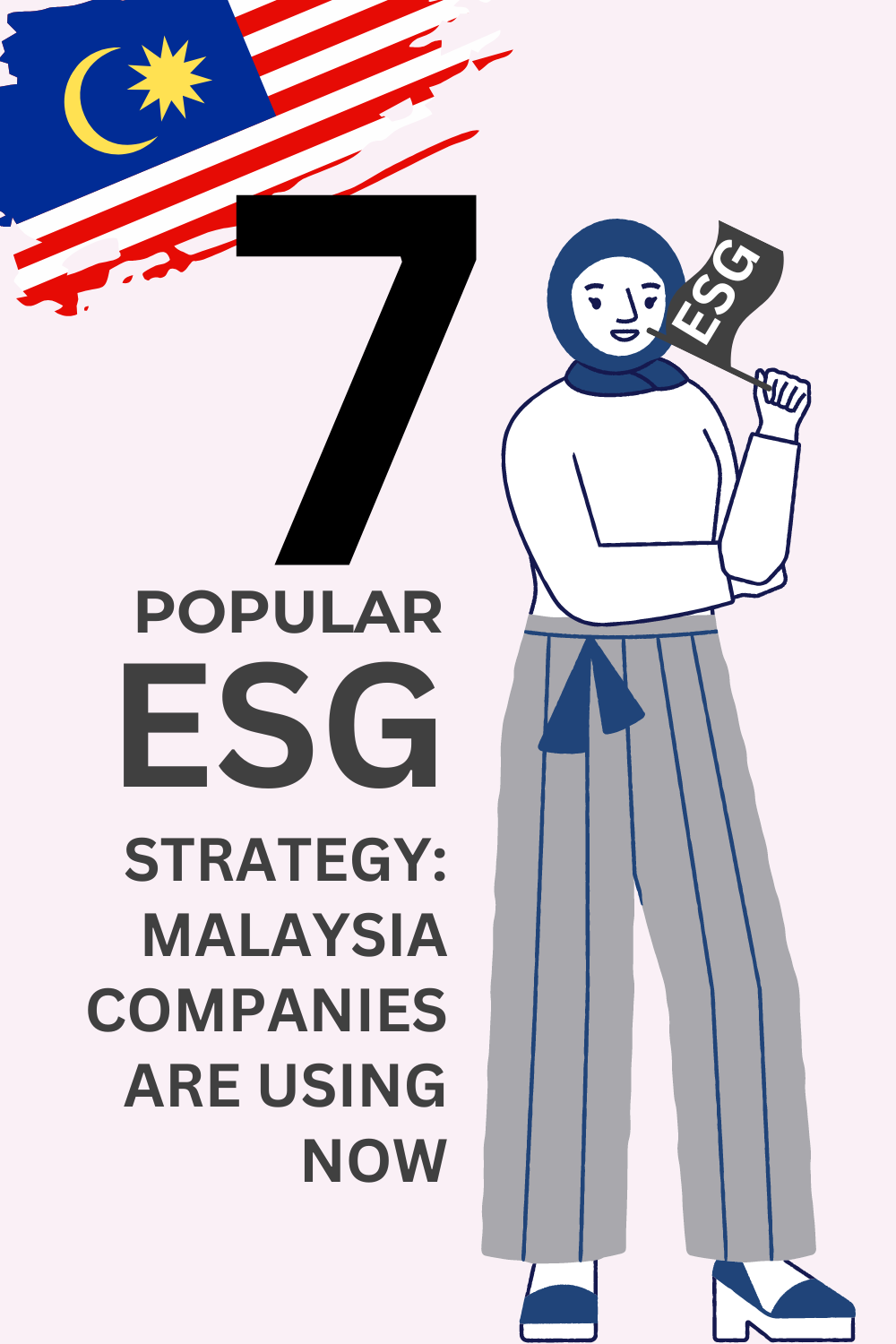Further to our email sent last month summarising Key Changes Affecting Directors & Shareholders (Click here to read Part II, if you miss out on that).
This week we look into the changes affecting profit distribution by company, ie. DIVIDEND DISTRIBUTION.
[UPDATE: The Bill has received Royal Assent on 31 August 2016 and has been gazetted on 15 September 2016 as the Companies Act 2016.]
| This can be a bit technical for those who are not familiar with accounting terminologies. Best to seek professional advice if not sure as to the concepts as well as the mechanism of this area of discussion. |
Let’s dive into the NEW rule immediately :
CHANGE 13 : New Criteria for Dividend Distribution
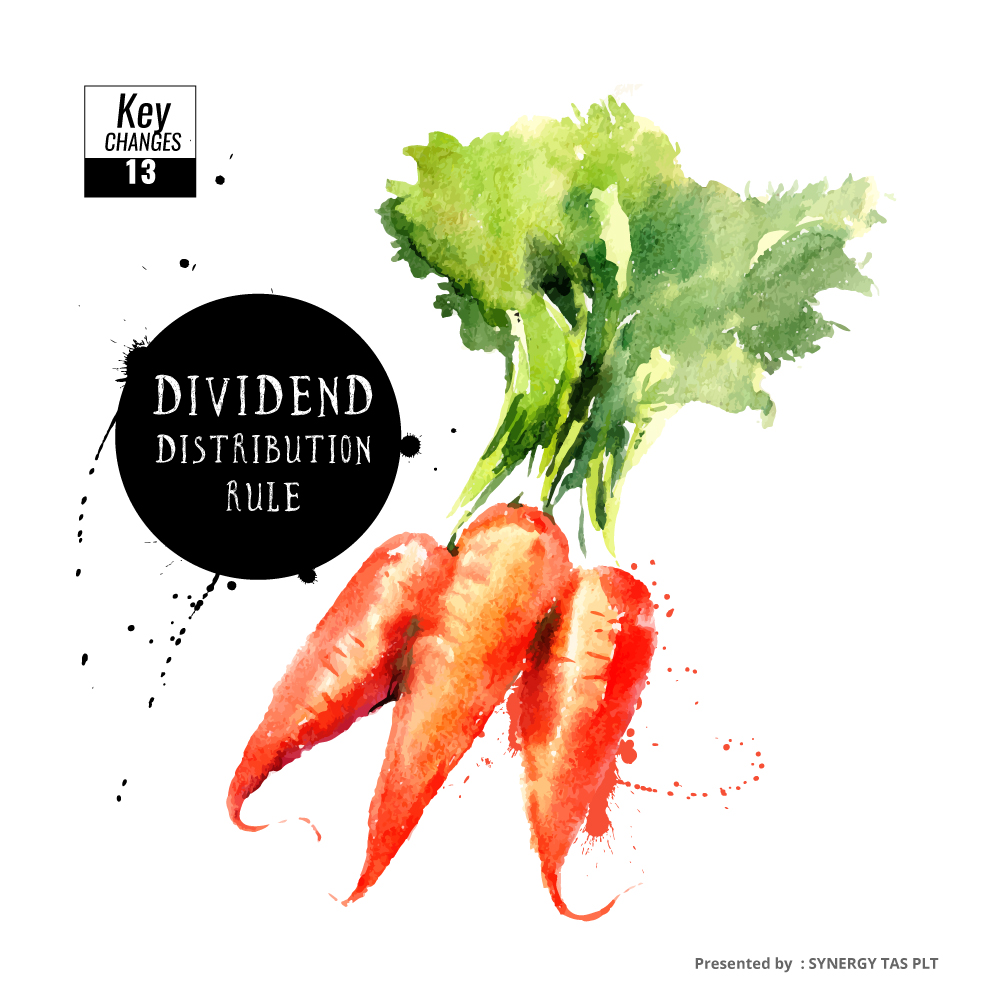
EXISTING : Currently, a company may only distribute dividends to its shareholders out of profits.
NEW : An additional criteria was introduced, the company is also required to satisfy the Solvency Test.

Solvency Test
Where director has to further satisfy themselves that the company will be solvent immediately after the dividend is paid (i.e. be able to pay its debts as and when the debts become due within 12 months after the distribution is made). The asset of the company has to be more than the liability of the company at the date of transaction.
Empowered to clawback
Under the new regime, companies are also empowered to clawback from shareholders, dividends which were not properly paid, unless the shareholder has received the dividend in good faith and is not aware that the company did not satisfy the Solvency Test.
Director and Manager beware
To safeguard the company from financial losses, every director or manager of a company who wilfully pays or permits payment of the dividend which he knows is not from profits shall also be liable to pay back the company the differential sum between amount distributed and dividend that the company is rightfully able to distribute.
| Manager refers to principal Executive Officer of the company for the time being by whatever name called and whether or not he is a director. |
Consequence for Willful Payout
In addition, every director or officer of the company who wilfully and knowing that the company does not satisfy the dividend distribution criteria yet still allow dividend distribution to be executed, upon conviction is liable to imprisonment not exceeding five years or a fine not exceeding RM 3,000,000 or both.
S 112 to 114, 131 to 133 of CB 2015
We have come to a point where new rules are enacted, this time is via the New Companies Act, we sincerely hope this price need not be paid to learn the lessons. Learn to understand the importance of latest Dividend Distribution Procedures and its criteria. Especially on the nitty-gritty part to determine the Mechanism for Solvency Test. Do keep an eye on this area by attending a company law seminar by reputable speaker. |
Remember lesson learnt in 2008? When the shift from Imputation System to Single-Tier? It has been a while since we last heard of the word “IMPUTATION SYSTEM“. If it sounds foreign to you, it is the dividend’s tax system adopted prior to 1 January 2008 which required the companies to charge tax on the profit at corporate level and thereafter again at shareholders level. Under the imputation system, companies resident in Malaysia are required to deduct tax at source at the prevailing corporate tax rate on dividends paid to their shareholders. The principle behind the imputation system is to overcome the double taxation of income. Therefore the tax charged by company will be imputed to the shareholders (in cases where the individual’s tax rate is lower than corporate tax rate, they will receive a tax refund from tax authority). Budget 2008 introduced the new tax system for dividend: the Single-Tier Tax System, effective from year of assessment 2008. Under this system, corporate income is taxed at corporate level and this is a final tax. Companies may declare single tier exempt dividend that would be exempt from tax in the hands of their shareholders. There are a few reasons for the move to the single tier system: First the imputation system was not able to accommodate increasingly sophisticated business transactions.Second the obligation of resident companies to maintain the franking account which entailed high compliance costs.Third to remove the constraint that a company might have distributable profit and yet could not frank dividend because of insufficient credits. The new regime is well accepted by the business and professional community and it was a hot topic for the year 2008. Despite the publicity and the wide spread discussion it gathered, however there were various listed companies still ignorant about the substantial change. It resulted in shares which were supposed to be distributed as single tier, but were distributed under imputation system instead, this erroneous tax deducted from the dividend was a very substantial sum, time and cost had to be incurred to pay consultants to appeal against it. This is unfortunate, it is a costly price to pay for being ignorance of latest and current changes especially that which is announced in the annual Budget. Worst still that it is so substantial and widely publicised, yet it was overlooked by some directors, shareholders and even some who claimed to be Professionals or in-house Company Secretary and Tax Department personnel. In view that Malaysia is going into election mode very soon, this year’s Budget 2017 announcement is crucial and Dr Choong is of the view that there are substantial goodies and changes which will provide good opportunities to plan your taxes in year 2017. Do look out for the upcoming excited annual Budget 2017 seminar for Income Tax, RPGT & GST Latest Updates and Tax Planning.(Click here to find out more). |
